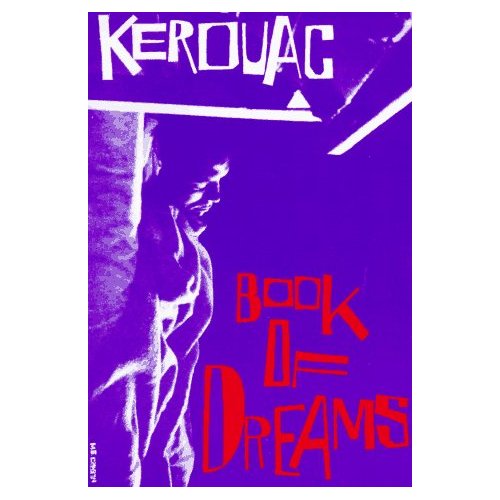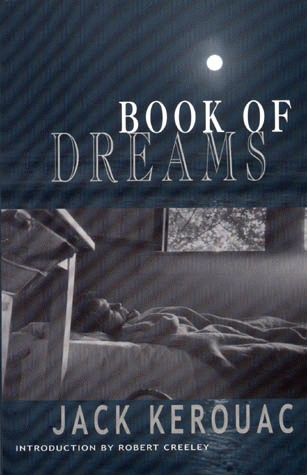
Beat
Dreams? - Jack Kerouac’s Book
of Dreams
In 1961
Jack Kerouac published a journal, containing hastily scribbled accounts
of
dreams. Book of Dreams can be read as vindication of Kerouac’s
poetics
of spontaneity, detailed in his manifestoes for prose writing.

Kerouac argues that his Dreams constitute a continuation of his autobiographical and confessional novels, providing unmediated and uncensored experience channelled straight onto the page. In a critique of Communism and psychoanalysis (“Freudianism is a big stupid mistaken dealing with causes & conditions instead of the mysterious, essential, permanent reality of Mind Essence” ) Kerouac offers his explanation of the universality of dreams as reality:

“The fact that
everybody
in the world dreams every night ties all mankind together […] in one
unspoken
Union and also proves that the world is really transcendental which the
Communists do not believe because they think their dreams are
‘unrealities’
instead of visions.” Why did Kerouac validate dreams as Buddhist
visions and oppose Bhuddist beliefs to Western thought systems?